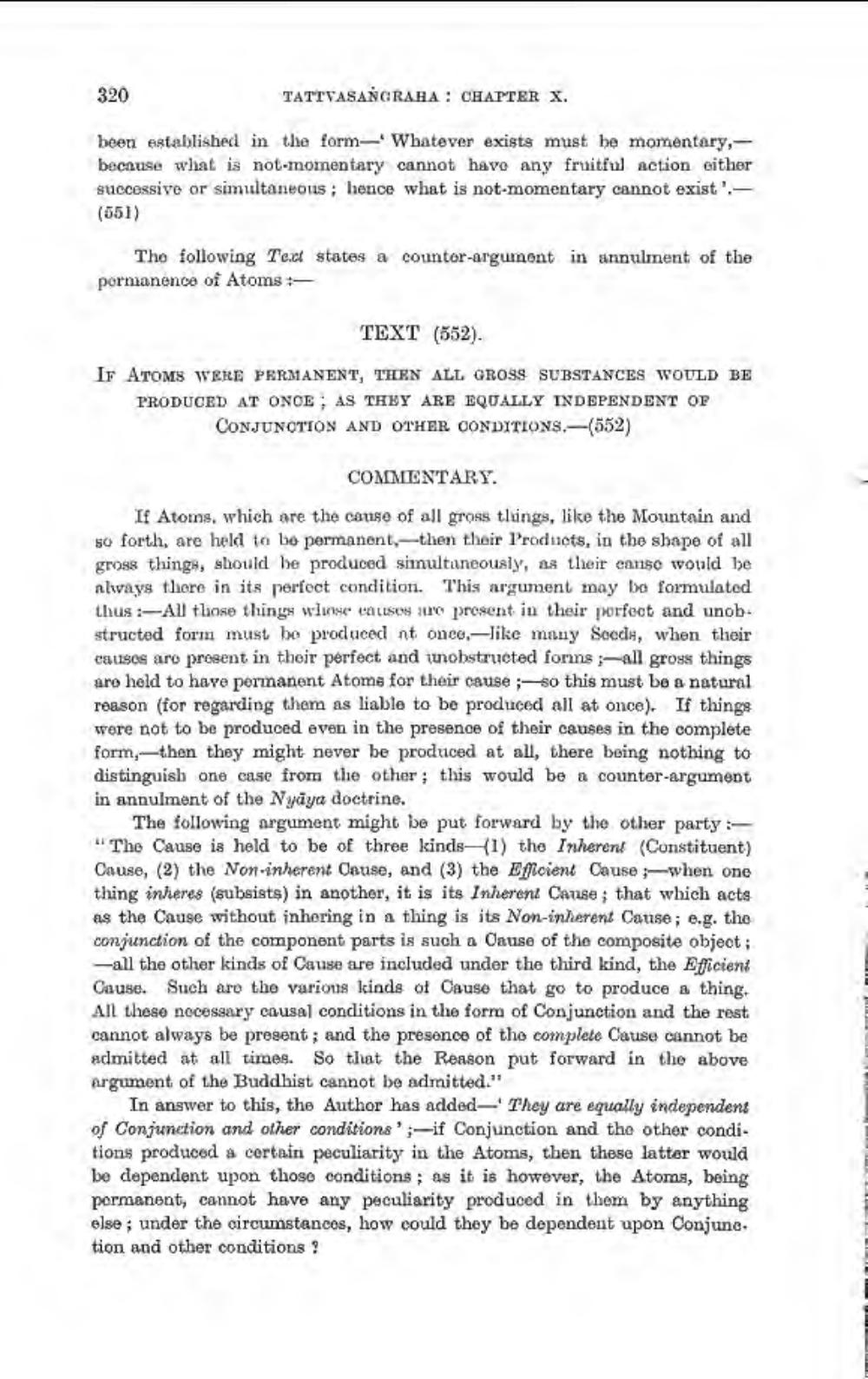________________
320
TATTVASANGRAHA: CHAPTER X.
been established in the form- Whatever exists must be momentary,because what is not-momentary cannot have any fruitful action either successive or simultaneous; hence what is not-momentary cannot exist'.(551)
The following Te.ct states a countor-argument in annulment of the pornanence of Atoms :
TEXT (552).
IF ATOMS WERE PERMANENT, THEN ALL GROSS SUBSTANCES WOULD BE PRODUCED AT ONCE, AS THEY ARE EQUALLY INDEPENDENT OF
CONJUNCTION AND OTHER CONDITIONS.-(552)
COMMENTARY.
If Atoms, which are the cause of all gross tlings, like the Mountain and so forth, are held to be permanent, then their l'roducts, in the shape of all gross thing, should be produced simultaneously, as their canso would be always there in its perfect condition. This argument may be formulated thus :- All those things wise aluses are present in their porfect and unob. structed form must be produced nt once.- like many Seech, when their causes aro present in their perfect and unobstructed forns ;-all gross things are held to have permanent Atoms for their cause ;-30 this must be a natural reason (for regarding them as liable to be produced all at once). If things were not to be produced even in the presence of their causes in the complete form, then they might never be produced at all, there being nothing to distinguish one case from the other; this would be a counter-argument in annulment of the Nyaya doctrine.
The following argument might be put forward by the other party : "The Cause is held to be of three kinds—1) the Inherent (Constituent) Cause, (2) the Non-inherent Cause, and (3) the Eficient Cause when one thing interes (subsists) in another, it is its Inherent Cause; that which acts as the Cause without inhering in a thing is its Non-inherent Cause; e.g. tho conjunction of the component parts is such a Cause of the composite objeot ; -all the other kinds of Cause are included under the third kind, the Eficient Cause. Such aro the various kinds of Cause that go to produce a thing. All these nocessary causal conditions in the form of Conjunction and the rest cannot always be present; and the presence of the complete Cause cannot be admitted at all times. So that the Reason put forward in the above argument of the Buddhist cannot be admitted."
In answer to this, the Author has added 'They are equally independent of Conjunction and other conditions ;--if Conjunction and the other conditions produced a certain peculiarity in the Atoms, then these latter would be dependent upon those conditions ; as it is however, the Atoms, being permanent, cannot have any peculiarity produced in them by anything else ; under the circumstances, how could they be dependent upon Conjuno. tion and other conditions !




